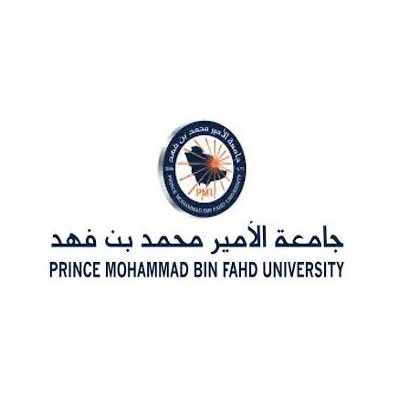Problem-solving is at the heart of successful engineering

Sponsored by

The founders of PMU’s College of Engineering built the institution with industry in mind
When Prince Mohammad Bin Fahd University opened its doors in 2006, it aimed to produce students who were employable and would add the most value to Saudi Arabia. “The design of the university was to cater to the Saudi national industry needs, offer a meaningful world-class education, produce employable students, and perform research and development that matters,” says Jamal Nayfeh, dean of the College of Engineering (COE), which offers three major programmes in civil, electrical and mechanical engineering.
Saudi Arabia is committed to diversifying its new, knowledge-based economy. As the world’s largest oil producer, it aims to reduce its dependence on oil-derived income and related industry, and broaden its economic sources of GDP and export base.
“PMU is looking at the current and future needs of Saudi Arabia, in terms of developing young citizens who will advance and accelerate the Kingdom’s economic prosperity. As such, we are looking at what industry needs and expects of our future engineers,” says Dr Nayfeh. “We were created as a partnership university [with] teams from national and international industry and academia to create, implement and deliver the best higher education system and practice.”
One of the most important industry needs is graduates who do not require a lot of on-the-job training. “We do project-based engineering, and we’re heavy on laboratory work,” Dr Nayfeh explains. “Students have their hands on the latest cutting-edge technology, and this makes them industry-ready. Employers do not have to train our graduates much.”
In order to produce such employable graduates, the university requires a mixed and experienced teaching staff. “Faculty from different parts of the world come with diverse ideas,” he says. This benefits how they approach problems and the types of experience they bring to research, as well as to their students.
“With a diverse group of cultures, students are exposed to different people – Asian, European, North American, local – and this strengthens the diversity of their thinking and the way they tackle problems,” Dr Nayfeh says.
PMU’s international faculty also helps to teach the soft skills that prepare students for the workplace. The COE’s curricula are not limited to the “hard sciences”. While students study typical standard and advanced engineering courses such as mathematics, chemistry and physics, they are also taught social and behavioural sciences, as well as encouraged to participate in extracurricular activities and professional and social clubs that develop communication, teamwork and leadership skills.
The university’s strategies for driving change do not end there. It sets itself apart from other institutions in Saudi Arabia by uniquely accepting women into its technical majors. With recent mechanical and civil engineering programmes open to both sexes, it will soon have its first female graduates.
But nurturing students is only the first part of the university’s plans. “When we started our mission a decade ago, we focused on delivering quality undergraduate education programmes. In the second phase, we’re augmenting our focus by adding graduate studies and research,” Dr Nayfeh says.
PMU’s research goals include increasing its publication output. To achieve this, it is taking a top-down, university-wide approach, with an aim to complete research that will be “fast paced, with tangible results”.
Although its idyllic location is suited to a holiday resort, with white desert sands on one side and the blue waters of Half Moon Bay on the other, PMU prides itself on being in tune with industry and producing research that has an impact.
Through its Industrial Advisory Boards, PMU partners with industry to create solutions for real-world problems. “Some of the problems are global, some are specific to our communities,” says Dr Nayfeh. He cites the COE’s expertise in energy and power generation, communications systems, robotics, materials science and manufacturing as ways in which it is particularly well-suited to collaborating with industry.
Robotics is a big theme at the institution. There are projects developing robotic prostheses for people who have lost limbs, for example, as well as systems for monitoring the health of civil and industrial infrastructures, such as oil and gas companies and water treatment facilities.
Dr Nayfeh says that solutions for these systems could incorporate ground vehicles and/or drones that inspect and investigate whether infrastructure components require scheduled, impromptu or preventive maintenance, continuous monitoring of industrial assets or replacement of parts to ensure optimum and safe operating conditions that avoid costly shutdowns and loss of production.
This dovetails with PMU’s applied research into materials science and engineering, which involves developing new materials and improving existing ones. “We live in a harsh environment,” says Dr Nayfeh. “Heat and moisture take their toll on everything, whether it is an industrial plant, roads or bridges. We have lots of activities to do with making materials perform better and have a longer service lifetime.”
In the Middle East’s climate, corrosion is a very serious problem, so there is research into how to detect and treat structural cracks and failures that it causes in systems. “Our work also involves anticipating problems and coming up with solutions so that downtime and accidents in plants will be completely avoided,” Dr Nayfeh adds.
PMU’s emphasis on manufacturing is spurred on by Saudi Arabia’s economic performance expectations, which would increase the private sector’s contribution to GDP to 65 per cent, from its current level of 40 per cent. Its goal is to create more opportunities to localise manufacturing, particularly with regard to energy, whether developing renewable energy solutions or making existing fossil-fuel technology more environmentally friendly and efficient.
But PMU adds the most value to Saudi Arabia through its students’ ability to transform the economy. The vast majority of the COE’s graduates are employed locally and nationally. And many are using their engineering expertise and entrepreneurial drive to set up their own businesses, contributing to the economic diversification that is being encouraged nationally. “You can see that in what has been built around the university,” says Dr Nayfeh, “in our spheres of influence, and in the growth in the Kingdom and the Gulf region.”
More information about Prince Mohammad Bin Fahd University
